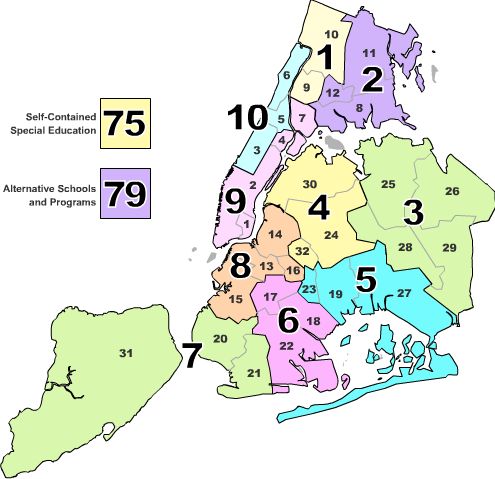 I am reasonably sure that independent booksellers who work closely with schools feel unsettled by the news that Amazon Lands Major Account: New York City Public Schools. Rather thick for the thin edge of a new wedge in an already unbalanced market. The question at hand is whether working through that unsettling feeling can yield anything productive, rather than a simply cathartic result.
I am reasonably sure that independent booksellers who work closely with schools feel unsettled by the news that Amazon Lands Major Account: New York City Public Schools. Rather thick for the thin edge of a new wedge in an already unbalanced market. The question at hand is whether working through that unsettling feeling can yield anything productive, rather than a simply cathartic result.
To help us answer that question, expert help seemed called for. Few people can provide greater insight into calibrating the means of maintaining the social and economic balance essential for a civil society than John Locke. He was kind enough to take some time out of his busy schedule to share his insights with us.
Kenny: Thanks so much for joining us John. I am a big fan of yours.
John: I am well pleased to hear that favorable report. Tell me of your concern.
Kenny: Well then, school districts that have deep rooted relationships with independent bookstores work together to find a dynamic way to meet the district’s needs for book-related resources, maximizing both quality and value. When I say value I refer to indispensable title input, author appearances, class literacy enrichment, and creative project partnerships in and out of the classroom. Problem solving is intrinsic to the relationship. Yet in looking at the size of New York City’s school districts as a centralized purchaser, represented by the NYC Department of Education itself, I wonder if that size precludes a solution tied to independent bookstores, and if so is there anything that can rectify that?
 John: I see. The Amazon – New York City School District deal certainly is a triumph of physical resources, infrastructure, low cost, and scale, over human resources, personal connections, fair cost and personalized partnership. Given the enormous scale involved in this case, and considering the answering immensity of Amazon’s operational scale, along with the product format, e-book, of which Amazon has a roughly 75% market share, the choice of vendor seems, retrospectively, a foregone conclusion.
John: I see. The Amazon – New York City School District deal certainly is a triumph of physical resources, infrastructure, low cost, and scale, over human resources, personal connections, fair cost and personalized partnership. Given the enormous scale involved in this case, and considering the answering immensity of Amazon’s operational scale, along with the product format, e-book, of which Amazon has a roughly 75% market share, the choice of vendor seems, retrospectively, a foregone conclusion.
Kenny: Are you saying that this is a case in which no palliative action can be taken?
John: Not at all. It is a question of exploring the nature of the issues involved and then applying regulation accordingly. Amazon’s accumulation of horizontal and vertical resources indicates a failure of your government to regulate the economy. The accumulation of power in such an unregulated state is hardly surprising. It is indeed the state of nature which government exists to regulate and insure a civil society. As I have mentioned before, wherever law ends tyranny begins. One form of palliative action would be to awaken the government to its duty through outreach.
 Kenny: Understood. That outreach is indeed being undertaken. It is of the first importance, but it hardly answers the immediacy of the current issue.
Kenny: Understood. That outreach is indeed being undertaken. It is of the first importance, but it hardly answers the immediacy of the current issue.
John: Ah. You’ll have to forgive me. I have been departed from the rough and tumble of life so long that issues of immediacy often give way to a broader frame of reference.
Kenny: All right then. So is it at all possible to extend the scope of independent bookstores and the personal resources they represent into a large-scale resource solution?
John: Consider again that the sheer scale of the NYC school district strains the possibility of a centralized order being handled by a single independent bookstore partner, given, for one thing, that the district likely has many potential independent bookstore partners.
That being so, one would still like to say yes, that some form of centralized matchmaking hub in conjunction with e-book resources with outreach to schools made via both the central hub and the constituent bookstores, along with some form of fair profit sharing is possible. Yet there are many formidable issues there. Some large districts are peppered with bookstores with long-established relationships with various schools; others are bereft of store relationships. Whether membership in a consortium of bookstores to serve this need was restricted to stores with established school accounts would be another issue, anti-trust issues of ostensibly competing bookstores working together to negotiate and manage large district-wide purchases might be impossible to work out.
Kenny: I take your point. Still, ceding educational business without striving to keep the transaction within the realm of competition is not a happy position. Assessment and dialogue by educational partners is a vital dynamic. There are always questions about format and content that we can make more meaningful in an environment in which children are reading them. Is this volume of e-books in the classroom well considered? To me, the nature of a transaction carries over into the nature of engagement, and this is particularly true with outreach to schools. The human, intellectual, and cultural value we offer is worth fighting for regardless of scale.
 John: Now now, I didn’t say that it wasn’t. The issue here is scale. The singular scale and dimension which Amazon has been allowed to attain in this unregulated economy has allowed for an answering scale of centralized purchasing by the NYC school districts. Indeed the NYC School District’s centralized purchasing has resulted in its book purchases being awarded strictly to wholesalers, again precluding their retail partners from the table.
John: Now now, I didn’t say that it wasn’t. The issue here is scale. The singular scale and dimension which Amazon has been allowed to attain in this unregulated economy has allowed for an answering scale of centralized purchasing by the NYC school districts. Indeed the NYC School District’s centralized purchasing has resulted in its book purchases being awarded strictly to wholesalers, again precluding their retail partners from the table.
The only immediate answer then is self-regulation. If school districts value their independent bookstore partners then the scale of purchasing must reflect that. School district purchasing scales wax and wane according to policy decisions. Outreach to the government is important, but outreach to schools regarding adapting the scale of purchasing to the value of personalized educational partnership is equally important.
In the end it is about maintaining value and human connection as a viable book retailing option regardless of scale. The easier it is to match the resource needs of your school partners, the more likely it is that the high quality character of your relationships will extend across a broader range of a school district’s resource needs. The point is to maintain competition by adapting the character and nature of existing relationships and resources to variances in size. The only way to do that is to advocate for purchasing scales that are not inherently monopolistic.
Kenny: Thank you so much, John.
John: It was a pleasure.
John Locke Considers the Amazon NYC School District Deal
Kenny Brechner - April 28, 2016
Leave a reply
